
Baldur's Gate 3 Beginner's Guide - Some quick tips to start your adventure with
Baldur's Gate 3 is out now, and Larian Studios' long-anticipated follow-up to the legendary RPGs Baldur's Gate and Baldur's Gate II: Shadows of Amn is ready to be seen by the world at large. Whether you've just started your first session, are waiting for your Early Access copy to upgrade to a full one, or are holding out for its eventual release on consoles, consider looking over our Baldur's Gate 3 beginner's guide, where we've gathered a few quick tips that could make your opening hours smoother.
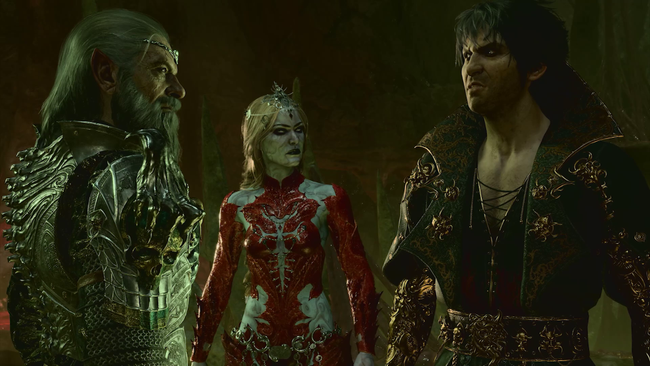
The First Run Isn't The Last
Baldur's Gate 3 is a huge game, but it's also quite dense, and there's no way to see absolutely everything it offers in a single playthrough. That's because much of the decision-making you'll do in Baldur's Gate 3 is influenced by the choices you make from the moment you create your character. Your current class, race, background, companions, and decisions made in related quests will influence the path you'll take to the titular Sword Coast city and beyond. And that's even before we get to the somewhat random nature of skill checks or the results of combat.
In other words, who you are and what you can do will change how you experience the game. A Lloth-sworn Drow Bard will tackle the challenges Baldur's Gate 3 sets up very differently from a Human Fighter. That's also part of the fun, even after you've rolled the credits. Once you're done with your first run, consider starting again and approaching things differently, as a different class or using a different roleplaying approach. Some major quests and even companion decisions can "lock out" alternative paths, meaning that other outcomes in the moment or down the line will only be available on a different playthrough. Take your time and experiment, and don't worry about trying to do everything in a single run.
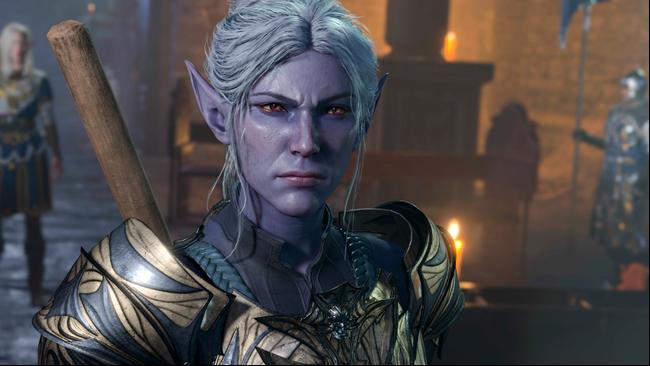
It's Not Odd to Go Even
In Baldur's Gate 3, your ability scores can mean the difference between success and failure. Each ability score you have - Strength, Dexterity, Constitution, Intelligence, Wisdom, and Charisma - influences the result of your dice rolls when it comes to Skill Checks and Saving Throws. Thus, having a high score in an Ability tied to a certain Skill helps ensure a positive result. For example, a high Charisma bonus gives you better results when rolling on Persuasion checks. A high Dexterity bonus is added to your Dexterity Saving Throws (depending on your class). thanks to the bonuses (and penalties) they provide.
For every two points above ten, your Ability Score bonus improves by +1. Thus a score of 14 would net a +2 bonus, with +5 being the maximum bonus for a score of 20. You don't get increased bonuses for odd-numbered Ability Scores. So a score of 12 would be just as good as a score of 13 in most cases. Thus, it's usually better to stick to even numbers during character creation.
The one caveat to this rule of thumb is when you know you can increase your score. Using a Feat at level 4, you can choose to upgrade one ability by +2 or two abilities by +1. Certain pieces of equipment can also improve some abilities when worn. Once you've gained a bit of foreknowledge, or with a bit of future build planning, you can take a "useless" odd-numbered ability and increase it to an even number to boost your bonus.
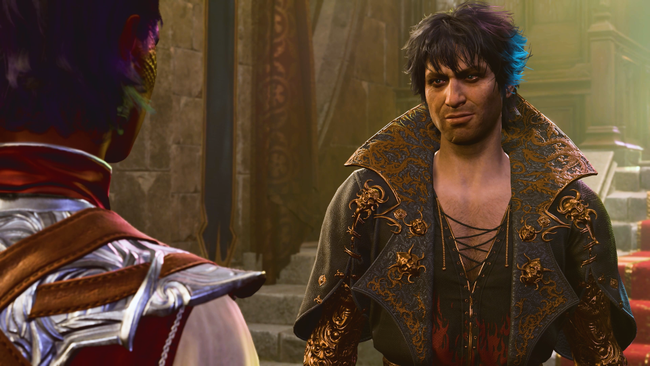
Explore Face-first
If you want to open up as many opportunities as possible when it comes to questing in Baldur's Gate 3, try to have the "face" of your party take the vanguard when in the field. In tabletop RPG terms, a "face" is a member of the group with high scores in skills and abilities related to socializing or knowledge. These include "conversation" skills like Persuasion, Intimidation, and knowledge-based skills like Arcana, Medicine, and History. They also apply to skills influenced by abilities like Charisma, and to a lesser extent, Wisdom and Intelligence. In other words, a party "face" is the person in the group that can do the talking.
Some classes are natural party faces thanks to their preferred stat or skill allocations. Paladins, Rogues, Bards, Sorcerers, and Warlocks all have class- or ability-based bonuses in skills that are useful to a face. Certain background choices, like Noble or Soldier, will also give bonuses to social skills like Persuasion and Intimidation. With these characters in the lead, you're more likely to open up different opportunities when taking on quests and when encountering situations that can be altered through conversation. For example, some neutral strangers you encounter early in your adventure might be dissuaded from trying to fend you off with violence if your face is in the lead when you first approach them.
Unless you're deep in the wilderness or the depths of a hostile dungeon, just walking around and taking in the sights in Baldur's Gate 3 isn't terribly dangerous on its own. Thus your potentially vulnerable face, like a Bard or a Sorcerer can take the front line. For additional insurance, you can have a sneaky character like a Rogue or Ranger scout ahead to detect hidden enemies or hazards from a safe distance.
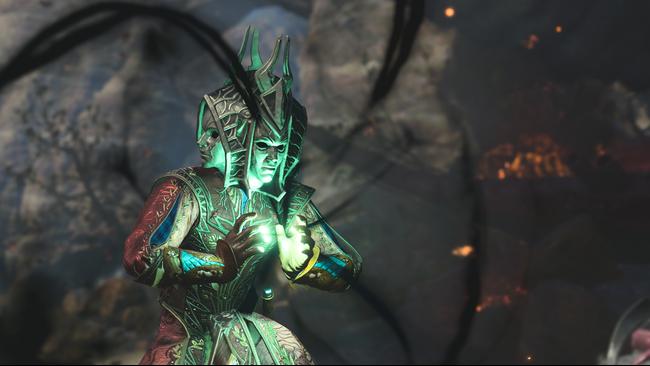
With Cantrip, Can Do
If you've played the original Baldur's Gate as a Wizard (then called a Mage) or another spellcasting class, you might have some traumatic memories stored away of being very (very) "squishy", thanks to your single-digit HP scores and complete inability to wear armor. Earlier editions of the Dungeons & Dragons rules were particularly unkind to caster classes at the lower levels. Worry not, though: Wizards, Sorcerers, Warlocks, Clerics, and Druids are significantly less vulnerable in battle.
This is in part thanks to the proliferation of combat-ready Cantrips. These so-called "Level 0" spells include powers like Acid Splash, Fire Bolt, Sacred Flame, and Ray of Frost. They're useful because while they're not particularly powerful on their own, they can be used without expending spell slots or needing to be prepared. Thus a Wizard can keep their distance from threats or contribute to the party's damage output without putting themselves at excessive risk. Other Cantrips can do things other than damage such as Abjuration, Mage Hand, Guidance, and Light.
Cantrips can be more or less useful depending on your choice of class, as well. A Wizard might not need them too much once they have a good number of spell slots unlocked, but a Warlock will likely rely on their Eldritch Blast Cantrip throughout their whole journey.
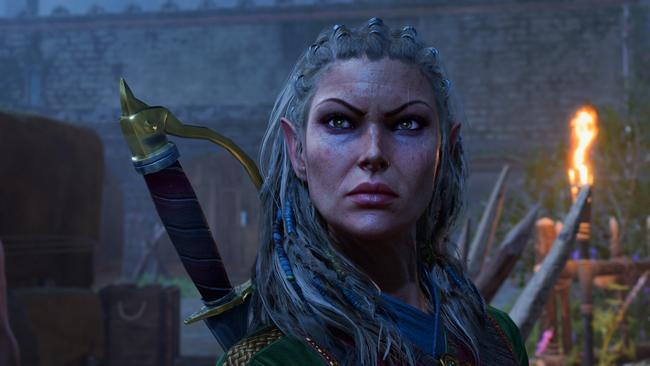
Teamwork Makes A Scheme Work
Unless you're planning a solo run, you'll likely be rolling through Baldur's Gate 3 as part of a party of multiple adventurers. These could include your fellow Origin Characters like Astarion and Karlach, companions like Jaheira and Halsin, the hireable NPCs you can find throughout the game, or even other players, if you're in a multiplayer session. With that in mind, give a thought or two to your group composition and make sure you've got a good spread of skills and capabilities to handle whatever challenges lie ahead. That means you'll want a mix of specialties, from the aforementioned party "face" to a character that might be good at picking open a locked door or disarming a trap. And of course, you'll want combat specialists on hand for when things get spicy. If you're playing a Wizard or some other physically vulnerable class, that combat specialist might be a burly Fighter or Paladin. If you're the burly Fighter or Paladin, then maybe you'll want to have a a supportive spellcaster like a Cleric, Druid, or a Bard backing you up with their magical talents.
Depending on your subclass choices and team composition, some classes can fulfill more than one of these rolls. A Bard is a great face, but can also turn their skills to support magic or even scouting. A Ranger with the right proficiencies can be just as deadly in an ambush as a Rogue hidden in the shadows. The possibilities expand even further when you take up the options unlocked by multiclass builds.
This paradigm even applies outside of combat. For example, Bards can use their Performance skill to perform in public. In some situations, this will cause nearby NPCs to pay attention to the Bard's performance, distracting them from their duties, such as guarding valuables.
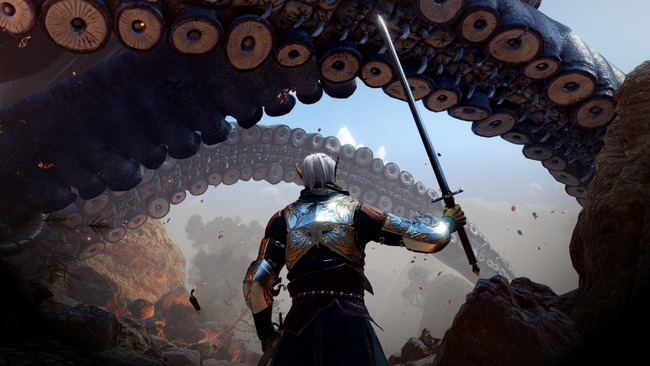
Consider Explorer Mode for a Relaxed Run-through
If you find yourself stressed out by the many options and considerations you face in Baldur's Gate 3, don't worry: Larian's got a setting for you.
The game comes with three challenge settings right off the bat: Explorer, Balanced, and Tactician, with Balanced as the default setting. According to developer Larian Studios, your choice of challenge setting will influence the difficulty not just of combat, but of Skill and Ability Checks. Players will receive an extra +2 proficiency bonus to their checks in Explorer mode, vastly increasing the chance of a successful result on any given dice roll.
This extra proficiency also means players can have an easier time enjoying the game's story without worrying about whether or not they've got the right spread of skills or specialties for a given encounter. The extra bonus doesn't mean failure is impossible - just less likely, which provides "wiggle room" for approaches that would otherwise be seen as less than optimal.
Thankfully, you'll also be able to adjust the challenge settings at any time, meaning if Explorer mode is a little too forgiving for you, you can bump things up to Balanced or even Tactician.
And that's it for this mini-guide for Baldur's Gate 3 beginners! If you'd like more detailed information, such as suggestions for character creation or specific classes, check out RPG Site's full slate of guides to the game.